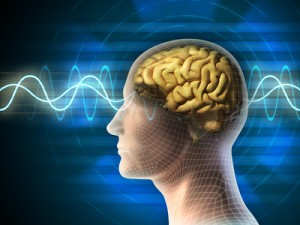Insomnia is the inability to fall asleep or remain asleep. It can either be acute, lasting one to several nights or chronic, even lasting months to years. When insomnia persists for longer than a month, it is considered chronic.
There are various causes for insomnia, such as stress, major shift in sleeping schedule, underlying disease. If left untreated, insomnia can lead to the development and / or aggravation of diseases.
When sleep disorders are perceived by the sufferer as severely disabling and emotionally and physically unbalancing, they are classified as clinically significant and must be treated promptly by a physician.
In most cases, the medical history is first analysed and then a sleep study often takes place. If the cause of sleep disorder/s is due to a disease, it must be treated as soon as possible to prevent the sufferer’s condition from worsening.
According to a recent study1 about 25% of all people in the developed world suffer from acute/chronic insomnia; this highlights the urgent need for action.
Contents
Find out more about sleeping disorders
Sleeping disorders cannot be determined objectively, as the symptoms are perceived differently by each patient. However, facts show that about 15% of all people suffering from sleep disorders battle with fatigue and severe performance limitations – therefore needing an immediate treatment.2 Insomnia affects all age groups, although the incidence of insomnia tends to increase with age. Women are usually more affected with insomnia then men.
Causes of insomnia
Various causes can lead to an unrestful or a completely absent sleep.
Short-term or acute insomnia is typically caused by stressful life events such as jet lag or changes in sleeping environment. If there is difficulty in getting to sleep for more than a month, it is called chronic insomnia. There are many causes of chronic insomnia: Secondary insomnia – due to a range of medical and psychiatric problems and the chronic use of drugs and alcohol. Primary sleep disorders – include circadian rhythm disorders, apnoea, or restless leg syndrome. Idiopathic insomnia – sleeplessness without a known cause.
The different clinical sleep disorders usually appear as
- Trouble falling asleep or
- Problems maintaining sleep through the night or
- Awakening too early
Typical consequences of chronic sleep deprivation include:
- Trouble staying focused during the day,
- Increased irritability,
- Fear,
- Restlessness,
- persistent fatigue and
In the worst case scenarios even the social and / or professional lives of those suffering from insomnia are impaired, making normal everyday life simply impossible.
Nowadays,sleep disorders are usually treated with medications that are intended to increase evening sleepiness to allow for sleep. However these drugs are filled with substances that are harmful to the body and patients frequently complain about a less restful sleep than usual.
Amino acids for insomnia
Conventional drugs should be limited for the treatment of insomnia due to the fact that they have certain addictive properties and sometimes cause undesired effects. This has lead in more recent times to more natural supplements being brought into focus to promote healthy sleep.
It is now possible to treat existing sleeping problems efficiently; with highly concentrated amino acid supplements, which is improving the quality of life for sufferers significantly. Supplements are regarded as more beneficial than sleeping pills; this is due to the fact that they cannot be overdosed and do not cause physical or psychological dependence.
Iron for insonmia
Particularly noteworthy is the trace element iron, as it can reduce the symptoms of Restless Legs Syndrome (RLS) and can significantly reduce the sleep disturbances associated with RLS. The neurological disease is accompanied by sensory disturbances and a simultaneous urge to move the legs, which makes it impossible for sufferers to fall asleep.
In a study of 50 patients in 2010, a link was established between low iron levels and the development of depression, fatigue, and RLS. An appropriate iron supplementation can reduce the motor and sensory symptoms of the disease, therefore improving quality of life and sleep 3. That is why prior to the prescription of drugs one should always make sure that symptoms are not based on an iron deficiency, which can often be solved with dietary or over the counter supplements.
Tryptophan promotes sound sleep
L-tryptophan can also successfully treat sleep disorders, especially in children. A regular L-tryptophan supplementation may reduce difficulties in getting up and prevent depression. This is due to the ability of the amino acid to stimulate, the synthesis of serotonin , which is required for the neurotransmitter to induce sleep 4.
In a serotonin deficiency, depression and / or sleep disorders can be easily treated with high-dose of tryptophan.
The amino acid L-tryptophan , however, is classified in most EU countries as a drug and not a dietary supplement or food. So L-tryptophan should only be used with the advice of a physician and taken in compliance with the prescribed dosage.
Glutamine deficiency can cause insomnia
The versatile amino acid L-glutamine should not be left out. Amino acid L-glutamine deficiency can lead to restlessness and insomnia. It is the most important inhibitory neurotransmitter in the brain and is responsible for the suppression of impulse conduction between neurons. This will have a calming effect on the brain 5 allowing for a deeper sleep and normalization of physical equilibrium. Sleep studies have indicated regular use of glutamine supplements leads to a more restful sleep.6
Sleep disorders can occur at all ages and are often a decisive turning point in the lives of sufferers. As soon as possible, a comprehensive examination and treatment should be initiated, because insomnia can frequently lead to further complications and problems.
Natural supplements are increasingly in addition to conventional drugs being used for the treatment of insomnia. However natural supplements are often a better option than conventional drugs as they cause less of a strain on the body and cannot cause any dependencies. With the help of some amino acids and minerals such as L-tryptophane, L-glutamine and iron – the quality of sleep can be greatly enhanced, ultimately improving the quality of life.
—–
Studies on amino acids and healthy sleep:
- “Léger D., e.a.: Characteristics of insomnia in a primary care setting: EQUINOX survey of 5293 insomniacs from 10 countries. In: Sleep Med. 2010 Dec;11(10):987-98” ↩
- “Ohayon M. M.: Epidemiology of insomnia: what we know and what we still need to learn. In: Sleep Med Rev. 2002 Apr;6(2):97-111” ↩
- “Cuellar NG et al.: The relationship with iron and health outcomes in persons with restless legs syndrome; Clin Nurs Res. 2010 Nov 1” ↩
- “Harada T et al.: Correlation between breakfast tryptophan content and morningness-eveningness in japanese infants and students aged 0 – 15 yrs” ↩
- “Hertz, L., Kvamme, E., McGeer, E.G. & Schousboe, A. (2003) Glutamine, Glutamate, and Gaba in the Central Nervous System Alan R Liss Inc., Volume 17, issue 5, pp. 422-427” ↩
- “Welbourne, T.C. (2005) Increased plasma bicarbonate and growth hormone after an oral glutamine load The American Journal Of Clinical Nutrition, Volume 61, issue 5, pp. 1058-1061” ↩




